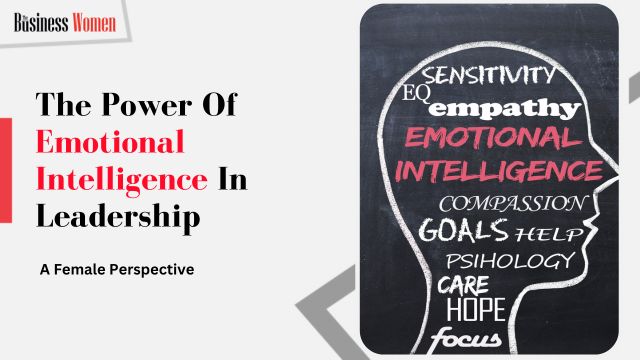In the ever-evolving leadership landscape, emotional intelligence has emerged as a defining trait that transcends traditional skill sets. This remarkable quality, often associated with empathy, self-awareness, and effective communication, holds the potential to reshape the dynamics of leadership. A female perspective on this subject brings to light the unique strengths women leaders bring. In this insightful article, we delve into the transformative power of emotional intelligence in leadership, drawing inspiration from women’s experiences in the Indian business realm.
The Essence of Emotional Intelligence in Leadership
Emotional intelligence, often abbreviated as EQ, encapsulates the ability to recognise, understand, manage, and leverage emotions in oneself and others. As women rise to leadership roles, their innate aptitude for emotional intelligence becomes a key driver of their success. This holistic approach to leadership involves making strategic decisions and fostering an environment of trust, empathy, and collaboration.
Empathy as the Cornerstone of Empowerment
Empathetic leadership is a hallmark of emotional intelligence, and women leaders are naturally poised to excel in this arena. The ability to truly understand and connect with team members’ emotions creates a strong foundation of trust. Female leaders, often renowned for their empathetic nature, establish bonds beyond the workplace, encouraging open communication and teamwork.
Effective Communication and Relationship Building
Women leaders exhibit exceptional skills in communication, a vital component of emotional intelligence. Their prowess in active listening and clear articulation allows them to forge strong relationships within their teams and beyond. Effective communication helps convey goals and expectations and fosters an environment where every individual feels valued and understood.
Harnessing Self-Awareness for Personal and Professional Growth
Self-awareness, another facet of emotional intelligence, empowers women leaders to recognise their strengths, weaknesses, and areas for improvement. This introspective approach allows them to adapt and refine their leadership style to serve their teams and organisations better. By acknowledging their emotions and how they influence decision-making, women leaders create a blueprint for continuous personal and professional growth.
Navigating Challenges with Emotional Resilience
The business landscape is replete with challenges, and emotional intelligence equips women leaders with emotional resilience. This trait enables them to navigate adversity while maintaining composure and providing a source of strength for their teams. Demonstrating emotional resilience during challenging times fosters an environment of optimism and determination.
Empowered Decision-Making
Decisions in leadership are rarely straightforward. Emotional intelligence empowers women leaders to make decisions not solely based on facts and figures but also considering the emotional impact on individuals and the overall team. This people-centred approach to decision-making nurtures a supportive work culture and encourages loyalty and commitment.
Promoting Diversity and Inclusion
Female leaders often champion diversity and inclusion within their organisations, and emotional intelligence plays a pivotal role in this endeavour. By recognising and valuing the unique perspectives and experiences of team members, women leaders create an inclusive environment that thrives on collaboration and creativity.
Balancing Empathy with Firm Leadership
Empathetic leadership does not equate to leniency; instead, it combines understanding with firmness. Women leaders adeptly balance empathy with setting clear expectations and holding individuals accountable. This balanced approach cultivates respect and a sense of responsibility among team members.
Inspiring the Next Generation
Women leaders who harness the power of emotional intelligence become role models for the next generation. Their ability to lead with empathy, navigate challenges, and foster an inclusive environment paves the way for future women leaders to aspire to higher levels of achievement.
Conclusion
The power of emotional intelligence in leadership, viewed through a female perspective, catalyses change. As women continue to rise in leadership roles across India’s business landscape, their inherent strengths in empathy, communication, and relationship-building contribute to reshaping the paradigm of effective leadership. By embracing emotional intelligence, women leaders not only achieve professional success but also create a legacy of empowered, empathetic leadership for generations to come.









